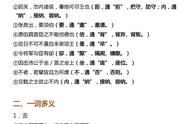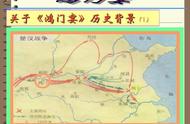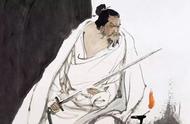苏轼·《方山子传》英译
方山子,光、黄间隐人也。少时慕朱家、郭解为人,闾里之侠皆宗之。稍壮,折节读书,欲以此驰骋当世。然终不遇,晚乃遁于光、黄间,曰岐亭。庵居蔬食,不与世相闻;弃车马,毁冠服,徒步往来山中,人莫识也。见其所著帽,方耸而高,曰:“此岂古方山冠之遗象乎?”因谓之方山子。
余谪居于黄,过岐亭,适见焉。曰:“呜呼!此吾故人陈慥季常也。何为而在此?”方山子亦矍然,问余所以至此者。余告之故。俯而不答,仰而笑,呼余宿其家。环堵萧然,而妻子奴婢皆有自得之意。余既耸然异之。
独念方山子少时,使酒好剑,用财如粪土。前十九年,余在岐山,见方山子从两骑,挟二矢,游西山。鹊起于前,使骑逐而射之,不获。方山子怒马独出,一发得之。因与余马上论用兵及古今成败,自谓一世豪士。今几日耳,精悍之色犹见于眉间,而岂山中之人哉?
然方山子世有勋阀,当得官;使从事于其间,今已显闻。而其家在洛阳,园宅壮丽与公侯等;河北有田,岁得帛千匹,亦足以富乐。皆弃不取,独来穷山中,此岂无得而然哉?
余闻光、黄间多异人,往往阳狂垢污。不可得而见;方山子傥见之欤?

Sir Fangshan
Sir Fangshan was a hermit living between Guang and Huang prefectures. In his youth he used to admire the chivalrous character of Zhu Jia and Guo Xie, and the gallant people in the neighborhood all affiliated themselves with him. When he was older, he changed his ways and applied himself to learning, hoping to carve a career in the world. Yet he was ignored and eventually failed. Afterwards, he retired to a place between the two prefectures, called Qiting, taking abode in a thatched cottage and living on herbs, secluded altogether from the outside world. He laid aside his carriage and pair, cast off his ostentatious garment, walking on foot on the mountain, unknown to the local in habitants. Looking at his square cap with a high crown, they would say, “Is this not in the fashion of the fangshan headdress as worn by ancient musicians?” Thus he was nicknamed Sir Fangshan.
As I was relegated to the magistracy of Huang Prefecture, I happened to pass through Qiting and came across him. I exclaimed, “Aha! Are you not my old friend Chen Zao, alias Jichang? What brings you here?” Sir Fangshan stared me in the face with great amazement, also asking me why I came here. I told him the reason. First he lowered his head in silence, then he lifted it up, laughing heartily. I was invited to stay at his home for the night. Although the premises were rather dilapidated, his wife and maidservants all looked content. I was much bewildered.
I remember that in his adolescence Sir Fangshan used to be given to wine and swordsmanship and to playing the prodigal. Nineteen years ago, when I was in Qishan, I saw that he, with two arrows in his hand, followed by two horsemen, was hunting on the western mountain. Seeing a magpie, flapping its wings, fly up ahead of him, he ordered the horsemen to shoot it. As they missed it, he spurred his horse forward angrily, killing the bird with a single arrow. Then he talked with me on horseback about tactics and the vicissitudes of past and present, claiming to be a hero of the time. It was only a short time since then, and his eyes still shone with shrewdness and indocility. How could he have so soon become a hermit in the mountains?
Being descended from a family of honor and merit, he could have gained an official post, and given a field of politics, he would have become conspicuous by now. besides, his home was in Luoyang, and his magnificent mansion was comparable with those of dukes and marquises. In addition, he had possessed land in Hebei and obtained an annual income of thousand bolts of silk, which would have enabled him to enjoy a fast living. However, he forsook all this in favor of a lonely life in the wild mountains. Could this have happened without his gaining much insight?
I heard that in that area where he lived there were plenty of eccentric talents who played the lunatic, willfully debasing themselves, and were beyond the reach of the local people. Had he ever seen them?















